
Guest contributor: Linda K. Wertheimer
Bad Advice Wednesday: The Art of Schmoozing (Just in Time for AWP)
categories: Bad Advice / Cocktail Hour
12 comments
A few years ago, some fellow writers in a workshop admitted to sheer terror at the thought of attending a big writing conference. They were terrible schmoozers. They worried about saying the wrong thing to a big-name author or agent. They fretted about wasting their money because they would leave the conference with no contacts in hand. Once again, theirs would be a dream deferred.
I sat there and realized I had a tiny advantage over the typical conference participant. In a sense, I’m a professional schmoozer, having been a professional journalist for more than 25 years. I’ve interviewed presidents, sports stars, authors, criminals, you name it, in the pursuit of a story. I pitched a workshop idea to Grub Street, a Boston writers’ organization, and this year, for the third time in a row, I will teach Muse 101: Honing Your Networking Skills Before the Big Conference about a month before Grub Street’s annual conference.
The advice I give stems from my experiences as well as interviews with authors, agents, and editors.
News flash for conference participants: Very few writers leave conferences with a contract or agent. A conference can be the starting point of relationships. How do you establish even a raw beginning of a relationship? Tread carefully. Each year, at my workshop, I show a PowerPoint of tips from others. I’ll include some of their wisdom as well as my own.
Since I’m guest-posting on a blog co-authored by the ever-savvy Bill Roorbach, I’ll start with advice he gave me to use in my workshop.
“Cultivate humility and compassion,” Bill wrote in an email when asked what writers can do to prepare besides researching speakers and their books. “Don’t think you’re going to please
someone with thousands of fans with offhand flattery. Learn how to make friends and offer something in return before asking favors.”
A possible case in point: Bill and I got to know each other at the National Writers Workshop. I was an unabashed fan of Bill’s work and squealed (slight exaggeration) when I saw his name on the program agenda. I was working on my memoir (still am) and had been doing exercises from Bill’s Writing Life Stories with friends in a writing group.
Being the shy retiring type, I emailed Bill before the conference and asked if he would be willing to chat during a break. He gave an enthusiastic yes and we had our own Bill and Linda cocktail hour. Ok, I drank a Diet Coke. We talked about many things, including my work and his. While I didn’t hand him a manuscript, Bill offered to look at my chapter outline and made suggestions on the spot. He gave me more time than I expected. I don’t remember everything we said, but I do remember sharing some laughter. It was the beginning of a connection, the same connection that probably led me to write this for Bill six years later.
I have met authors and agents in similar ways over the years. My method is simple: If I approach someone, I make sure I’ve done research beforehand. That includes reading the books of authors and knowing the client list of agents. At huge conferences, it’s impossible to memorize the speaker list and the bios, but I scan them and focus my attention on those who write in the genres I do or represent someone who does. If I don’t know anything about an author or agent who I happen to bump into, I don’t pretend to, either.
I do not stalk, and I read body signals. Someone poring through a manuscript over coffee likely does not want to be disturbed. And yeesh, if they’re snorkeling while on break during the Maui writers’ conference, leave them alone. Renee Zuckerbrot, a literary agent, told me about a writer who swam into the ocean to hunt down Renee’s friend, an agent who was snorkeling.
“The person literally started pitching her,” recalled Renee, who couldn’t resist quipping to her friend: “You missed a wonderful opportunity to say, ‘shark’ and flee back to shore.’ ”
I met Renee in the hall at Grub Street’s annual conference a few years ago. She had this air of familiarity. Turned out, we both went to Northwestern at the same time. She remembered me more than I did her. That didn’t matter. We connected on a shared interest – our alma mater. In our first meeting, we mostly chatted about that. We did not talk about writing until much later. She did not become my agent. She did become a friend.
One of my conference goals: Avoid becoming the focus of someone’s story about an overeager, downright rude participant. I asked Bill about the funniest encounter he has had at a writer’s conference, whether it was a writer approaching him or someone else. Wrote Bill, “This isn’t funny: A young man brought the manuscript of his novel to a reading by Kurt Vonnegut, and during the Q and A after, marched up and handed the huge thing to the great man. ‘This is my novel!’ he proclaimed. ‘Prove you’re a good man and read it.’ Vonnegut stared a long time, puffing a cigarette…, and said, ‘If I read it, young man, it won’t be any better or worse than it already is.’ ‘’
Hope Edelman, author of several books, including the best-selling Motherless Daughters, is just as frank about the perils of offering unsolicited manuscripts. “The biggest faux pas anyone can make with me is come over like a cold call and ask if they can send me their manuscript for comments for free,” she says. “I do that for payment. It’s not the best way to introduce yourself to someone to ask them to devote hours of work to a stranger.”
Speaking of chance encounters, prepare yourself for those times when the author, editor, or agent may start the conversation, says author Clifford Garstang, editor of Prime Number, a literary journal. “The biggest mistake a writer can make is to be unprepared. I was at a major conference once and was walking to a party. Along the way I ran into a visiting agent… Since she asked, I described the book I was working on. She asked me to send the manuscript The point is: I had a succinct pitch ready when the opportunity rose,” he says.
When all else fails, use
common sense. Be yourself. It is fine to dream of what could happen at a writer’s conference, but you’re
more likely to enjoy the experience if you just relax.
“Think of the conference as one step in a series of endless steps in your journey as a writer. You can prepare, but unexpected things
will occur that may throw you off balance. … The author you adore might be rude to you,” says Jessica Keener, author of Night Swim.
“Listen to what your gut is saying to you,” she advises. “Too nervous to speak up? Maybe you need to be the listener for now. Try not to push too hard. Let things unfold.”
Jessica and I met a few years ago – through Facebook. She was a friend of a friend. I noticed that she was a fiction reader for Agni, a literary journal. I don’t write fiction, but I wanted to learn more about the world of literary journals. I messaged her asking if she would be willing to chat about journals, and she not only agreed but said she preferred to talk by phone.
Over time, we began meeting over coffee or lunch to talk about writing and well, life. She offered to give feedback on a piece of mine. I let her, incorporated her feedback, and we both celebrated when that piece later was published in Tiferet. Later, she asked if I would act as an extra proofreader on her debut novel. I said yes with no hesitation. We have become friends, though I view her as a mentor. Jessica helped me learn how to do one of the most difficult things of all for a former daily newspaper reporter: slow down.
The same advice works at writing conferences. Don’t rush through them. Savor the time you’re there. You just never know who you might meet.
#
[Linda K. Wertheimer, a veteran journalist and a former Boston Globe education editor, will be alternately schmoozing and listening at two upcoming conferences in Boston, the AWP annual conference and Grub Street’s Muse & the Marketplace. Linda, who is working on a memoir, blogs about faith and family on her blog, Jewish Muse, a Writer’s Blog on Faith and Family, and for The Huffington Post. Her work has been published in many places, including The Writer magazine and the Boston Globe Magazine. She teaches journalism part-time at Boston University. Follow her on Twitter @lindakwert.]

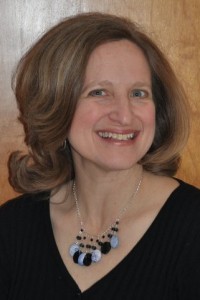
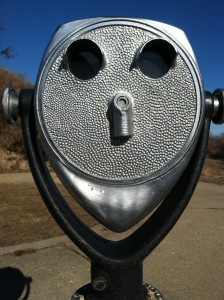
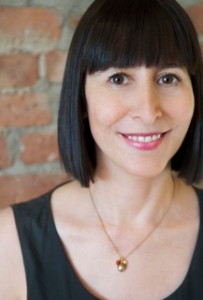
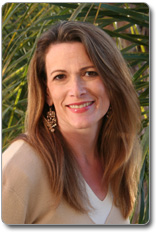

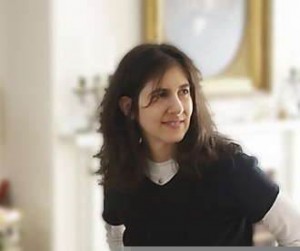

Hey Linda, I think your take on networking is incredibly refreshing and makes a lot of sense: go in humble but prepared, and look to gain insight and friends, not services. It’s interesting, because a lot of this can apply directly to all the acting networking events I feel I’ve got to drag myself to. So thank you!
Vasilios,
Thanks. Yes, networking is networking, whether it’s writing or acting or even technology. Get to know people before you ever think of asking them for anything.
Linda
Last night on the Oscars, Ben Affleck thanked people who helped him even though he couldn’t do anything for them in return. In other words, they helped him because they were kind, decent people. I instantly thought of Linda Wertheimer, who did just that for me quite recently. She’s one of the good guys. We didn’t meet at a conference, but my advice is to try to befriend decent people. Nice begets nice.
@sue, aw thanks! And @bill and @dave, I did not ask my friends to write nice things about me on here, honest. For those not familiar with Sue’s work, she has written two memoirs and one nonfiction book. Her most recent work, a memoir, You Saved Me Too, What a Holocaust Survivor Taught me about Living, Dying, Loving, Fighting and Swearing in Yiddish. Great book by a real mensch. Sorry, I don’t know the Yiddish word for a female mensch.
Thanks Linda!
The MFA students at New Mexico State greatly appreciate the insight as we prep for Boston. We’ll see you there-
Rob
Linda took one of my classes at Grub St. and I can attest to her energy and enthusiasm for all that the writing world has to offer. So take her class, if you can, and I’m sure you’ll learn even more than what is in this great blog!
Tara,
Thank you for that glowing recommendation. I still remember your class about small presses, etc. You taught me to keep my mind open about all the publishing world has to offer.
See you at Muse2013 and maybe AWP, too.
Linda
Thanks for this wise perspective, Linda. Aspirants who fear being brushed off because of the egos of Big Name writers surely do need to check their own egos at the door.
@Richard Gilbert, you’re welcome. I’ve been on the receiving end, too, of people who want something from me because I’ve done what they haven’t — published work somewhere. Sometimes, I can’t do much for them for a very simple reason. Don’t have the time. They see it as a brush-off. We all, of course, just need to be human with each other.
Linda,
Very thoughtful & savvy article. Thanks for the heads up! See you @AWP.
This is great! Thanks, Linda.
And here’s tip from Dave: liquor up!
Dave, you’re welcome. And yes, mojitos or wine or liquor of the aspiring author’s choice definitely help. 🙂